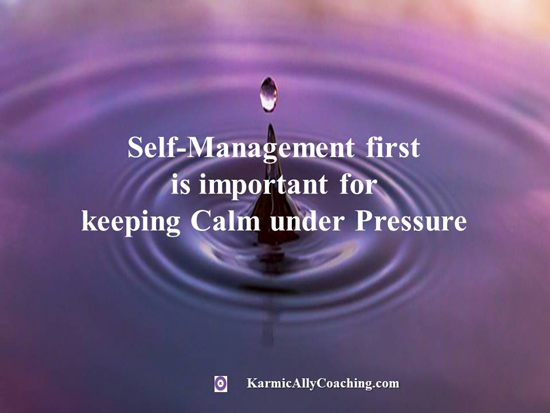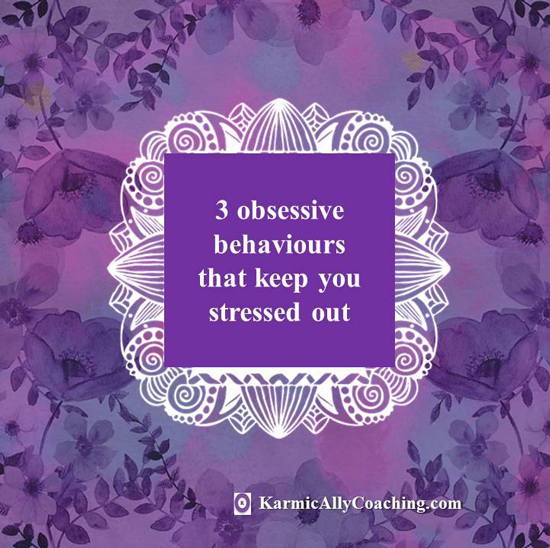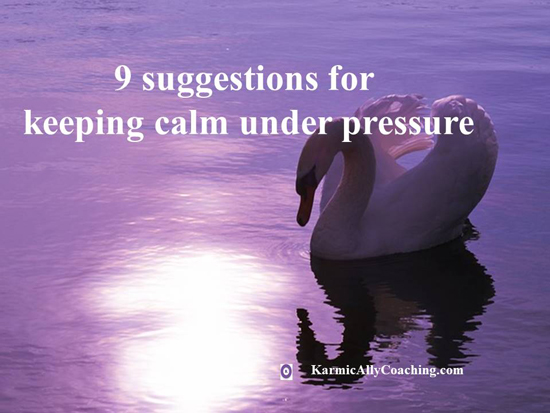This post has already been read 238 times!

Knowing how to stay calm is a very important skill. However, this skill tends to deteriorate under stressful or distracting conditions as I shared in my post on staying productive during chaotic times.
Staying calm under extreme pressure is more challenging than staying calm under moderate conditions.
For example, doing a training presentation for your department or team is relatively easy because you know most of your colleagues. The audience is supportive and will forgive goof ups.
Now think of doing the same presentation for the first time at a conference with an audience filling up a ballroom. The organizers are recording the session as part of the speaker contract. How well will you do now?
Of course, with practice you’ll improve your public speaking and presentation skills but until then?
Now, imagine being calm and peaceful at all times. How would your life change?
A greater ability to manage one’s emotions is invaluable!
It requires the emotional intelligence skill of self-management.
It’s your ability to use awareness of your emotions to actively choose what you say and do.
Self-management is important when it comes to controlling our emotions and responding to different situations.
For effective self-management, you need to first master the foundational skill of self-awareness.
You can only choose how to respond to an emotion actively when you’re aware of it.
Since we experience emotions before we can respond to them, understanding our emotions is necessary in order to choose our responses.
This gives us back our power to take control of difficult situations, maintain composure and respond with actions that avert crisis and achieve our goals.
It also helps prevent emotional hijackings because we are now aware of our feelings and how they are influencing our behaviour at that moment.
We are in a better position to manage our stress response.
But what if that isn’t true for you right now?
Quite possibly you’re engaging in a blocking behaviour. That impedes your ability to stay calm & in control of your emotions.

3 obsessive behaviours that keep you stressed out
Recognizing which of these barriers is affecting you is the first step towards getting rid of the problems that go with being too stressed.
The first is obsessive negativity.
When you are obsessively negative, it means that you have a tendency toward being “negative” about people, places, situations, and things in your life.
It’s also called having a “sour grapes” attitude. For example, you find yourself saying things like
“I can’t do this!” or “No one understands!” or “Nothing ever works!”
The second one is obsessive perfectionism.
When you engage in obsessive perfectionism, you are centred on trying to do everything “just so” to the point of driving yourself into an anxious state of being.
You may find yourself making statements such as, “I have to do this right, or I’ll be a failure!” or “If I am not precise, people will be mad at me!”
Again, this behaviour may be totally under the threshold of your awareness, but it interferes greatly with your ability to enjoy things without feeling “uptight” and “stressed.”
The third one is obsessive analysis.
When you are obsessed about analysing things, you find yourself wanting to re-hash a task or an issue over and over again.
For instance, you might find yourself making statements such as, “I need to look this over, study it, and know it inside and out…or else I can’t relax!” or “If I relax and let things go without looking them over repeatedly, things go wrong!”
While analytical thinking is an excellent trait, if it’s done in excess, you never get to stop and smell the roses because you’re too busy trying to analyse everything and everyone around you.
Gaining insight into this type of behaviour is one of the most important keys to letting go of stress and getting complete power over your anxiety.
If you find yourself engaging in any of the above “Blocking Behaviours”, there are two things you can do to help yourself.
First, ask the people you know and trust, “Am I negative about things?”, “Do I complain a lot?”, and “Am I difficult to be around?” The feedback may be painful but it’s only when you become aware of how you’re being perceived that you’ll be able to take corrective action.
Second, keep a journal to write down and establish patterns of when you are using “blocking behaviours.” Done properly, you’ll begin to see patterns in your behaviour that reveal exactly what you’re doing to prevent yourself from applying emotionally intelligent responses to situations.
Many of the suggestions I gave in my post on staying calm and productive during chaotic times will help you manage any situation.
Here are some more suggestions to support you as you develop the skill of self-management.

9 suggestions for keeping calm under pressure
Start your day being calm and make every effort to stay that way.
A calming morning ritual, performed religiously, will get your mind and body in the proper state. Then the only real task is staying that way throughout the day. A good morning often results in a good day, just like a good Monday often results in a good week.
Monitor yourself.
Continuously monitor your reactions to stressful events. How do you feel physically? What thoughts do you have? Do you use self-talk? Notice everything that has changed.
Bring yourself back to your calm state.
If your self-talk has become negative, take control and stop it. Turn it around and make it positive. If your heart is beating faster, take slow, deep breaths and relax. Think positive thoughts and focus on solutions.
Consider doing The Relaxation Response. This is similar to the technique used in Transcendental Meditation.
Remember that it’s not all about you.
Avoid assuming that a negative event says anything about you. If someone gets snippy with you at work, it might just be a symptom of trouble at home. People do things for lots of reasons that don’t involve you. It’s common to take things personally, but it’s often inaccurate.
Find some healthy coping habits.
Many of us shop, drink, or eat when we’re stressed. That’s a good way to end up poor, drunk, and overweight, all of which can add their own stress. Develop some new habits that are actually good for you. Yoga, meditation, and exercise are just a few suggestions.
Eliminate clutter from your environment.
This includes all types of clutter, including excessive noise and other distractions. Turn off your social media and email notifications. Keep your work areas clear of clutter. You’ll feel calmer and less stressed.
Get enough sleep.
It’s much easier to remain calm when you’ve had 7 hours of sleep rather than only 4. Sleep helps to reduce the stress in your mind and body. Being well-rested also allows you to handle stressful situations better.
Do self-inquiry.
Questions can determine our focus and influence our actions.
- Is this really going to make a difference? Does it matter? Is the other person overreacting? Am I over reacting?
- Am I stressed about the past, present, or future? The past is over, and the future hasn’t arrived yet, so focus on the present.
- What can I do to turn this situation around? Is there an outcome that will make everyone happy?
Take a break.
If you’re unable to remain calm, give yourself a few minutes to regroup. Some time alone can have positive results.
Staying calm in challenging situations can be difficult, but it’s a learnable skill.
So, start with less stressful situations and test your ability to stay cool, calm, and collected. In time, nothing will be able to get under your skin.
Additional Resource to Develop your Emotional Intelligence
Click here to learn more about Emotional Intelligence – The Basics for Professional Success




 I adhere to the Certified Coaches Alliance Code of Ethics and Standards. A copy is available on request.
I adhere to the Certified Coaches Alliance Code of Ethics and Standards. A copy is available on request.
 Let's Talk through the Connect Form:
Let's Talk through the Connect Form: